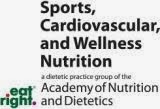At any given time and in any given magazine there they
are. The burning image of a sexy, ripped
couple enjoying life with a bottle of some magic elixir they take to take to
get results. This is the diet industry,
a $20 billion dollar industry with over 100 million Americans buying diet pills
and other supplemental aids. Obviously,
we haven’t learned much. This new crop
of “natural” supplements derived from plants, seeds, and berries are still just
as dangerous. Heart palpitations,
nausea/vomiting, mood swings, or even a heart attack can result from diet
pills. Yet we still keep buying
them.
Here’s what you need to know of a few trendy and popular
supplements:
Green Tea Extract
Other names: Camellia thea, Camellia sinensis, CPTV, EGCG to
name a few
Uses: weight loss, cancer prevention, stomach disorders
Side effects: dizziness, shakiness, nausea, not recommended
for pregnant women or women who are breast feeding. In addition, green tea can affect iron
absorption and anemia (this is important regarding people who have had weight
loss surgery), caffeine in green tea can affect anxiety, and also affect those
on blood thinners and blood clotting.
Bitter Orange
Other names: Aurantii
Fructus, Aurantii fructus immaturus, Aurantii pericarpium, Aurantium, Bigarade,
Bitter Orange Flower, Bitter Orange Peel, Chao Zhi Ke, Chisil, Citrus amara,
Citrus aurantium, Citrus Aurantium Fruit, Citrus bigarradia, Citrus vulgaris
Uses: for topical use
for skin/fungal infections, aromatherapy, can be combined with caffeine for
weight loss (no evidence supports it being safer than ephedra)
Side effects: high
blood pressure (bitter orange can affect the nervous system), rapid heartbeat,
glaucoma, is not recommended for pregnant or breastfeeding women, not to be
taken prior to surgery as it acts as a stimulant.
Raspberry Ketones
Other names: RK
Uses: speed-up fat metabolism, may reduce adipose (fat)
tissue, in animal studies, ketones also seemed to affect the production of
hormones that increase the body’s ability to burn fat. These were first made popular by Dr. Oz (he’s
since been yelled at during a congressional hearing by his supplements).
Side effects: we
don’t know the weight loss affects in humans or long term research on it
Guarana-seed Extract
Other names: Brazilian Cocoa, Cacao Brésilien, Guarana Seed
Extract, Guaranine, Paullinia cupana, Paullinia sorbilis, Zoom
Uses: taken as an aid to ‘burn fat’ and assist with weight
loss. There is insufficient evidence linking it as a treatment for
Malaria. According to WebMD, Guarana
contains caffeine which works by stimulating the central nervous system (CNS),
heart, and muscles. Guarana also contains theophylline and theobromine, which
are chemicals similar to caffeine.
Side effects: Guarana can be safe for healthy adults. The
caffeine in guarana can cause insomnia, nervousness and restlessness, stomach
irritation, nausea, vomiting, increased heart rate and blood pressure, rapid
breathing, tremors, delirium, diuresis, and other side effects. It should be avoided in persons with heart
conditions, pregnant women (200 mg/dL or more can increase the chances of
miscarriage). Large guarana doses might cause headache, anxiety, agitation,
ringing in the ears, pain when urinating, stomach cramps, and irregular
heartbeats. People who take guarana regularly may experience caffeine
withdrawal symptoms if they reduce their usual amount.
Sources and for more information:
The Office of Dietary
Supplements
WebMD




